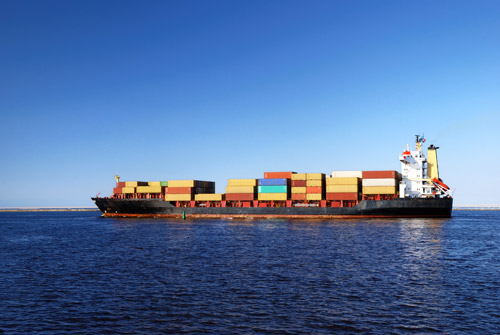
THE PROBLEM
"The need for cargo security hinders trade efficiency."
The complexities of global logistics are further burdened by rigorous international cargo security initiatives resulting from the events on September 11, 2001. These security initiatives have resulted in significant overlaps and created tremendous logistics and economic burdens. For example, several U.S. Security-oriented programs were implemented including the 24-Hour Advance Manifest Rule (24/AMS) for sea cargo, and (2–8/AMS) for land and air cargo, the Customs Trade Partnership Against Terrorism (C-TPAT), the Container Security Initiative (CSI), Importer Self- Assessment (ISA) and Free and Secure Trade (FAST). These are just a few of the U.S. programs, in addition to many other cargo security initiatives implemented by other countries around the world.
The importance of cargo security cannot be overestimated; it is a matter of major concern to every nation in the world. A single successful attack on a major transportation hub could put the entire trade of a country in jeopardy. Nevertheless, cargo security initiatives require a balanced economic approach that seeks to enhance security while increasing trade efficiency. Safety must be the first priority, but overly stringent requirements stand to cause significant harm by restricting commerce and discouraging trading activity.

THE SOLUTION
“The Multi Dimensional Digital Economy Application System (MDDEAS) simplifies and optimizes compliance by all real economy participants, while enhancing operational efficiencies through expedited clearances.”
The world today is headed towards rebalancing of the global economy. This means that high, mid and low-income countries will conduct more business and trade with each other’s. Therefore, Cargo Security requires a baseline horizontal system that facilitates trade efficiency while supporting security processes. The information generated and validated by participants through the normal course of business will increase the effectiveness of security measures, providing the necessary data to officials without any additional burden upon the private sector participants.
Within this balanced framework, the MDDEAS will provide:
1. Enhanced Supply Chain Security: Real-time dynamic validation of participant-related and shipment-related data against domestic and foreign security databases aids in the proactive analysis of deviations, mismatches, or other anomalies to flag dangerous or suspicious shipments. The heightened security protects both the physical well-being of participants in the shipment pipeline and the supply chain itself from costly or even catastrophic disruptions
2. Expedited Clearance: Automatic electronic submission of pre-populated security data enables faster movement through customs and border crossings by ensuring that security information is accurate, complete, formatted, and delivered in the most effective and efficient manner to all appropriate participants in the shipment process, including governments and Customs organizations. Point-to-world integration helps a shipper to be Cargo Security compliant on a global basis, thus minimizing the possibility of cargo flow disruption.

THE BENEFITS
"MDDEAS will enhance supply chain security and expedite clearance."
The Digital Economy is a policy recommendation that:
- Cuts across all jurisdictions
- Has been validated by assessments of what the real economy participants demand in order to do a better job
- Has the commitment of the capable technology industry to implement the desired digital tools rapidly
- Provide the tools to achieve the required multilayers of cargo
security, protecting borders and commerce flow against acts of
terrorism
- Protects international borders and the flow of commerce by providing multi-layered cargo security.
- Helps meet international cargo security mandates by reducing the cost and effort of cargo security.
- Provides dynamically updated shipment information, validated by multiple sources, to confirm the source of goods, for proper custom duties, flag counterfeit goods, and expedite advance clearance for inbound and outbound shipments.
- Deliver point-to-world integration, enabling customs-to-customs and customs-to-business interactive, read-time data visibility